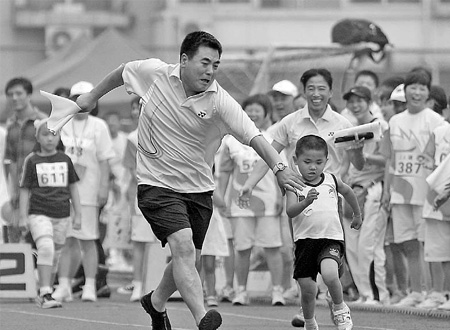Organ donations on the rise
A pilot program with which public health officials are seeking to develop a nationwide organ donation system has begun with success.
Since the program began in March, five people - four from Shenzhen and one from Tianjin - have donated organs.
Other cities and regions where the program is taking place include the cities of Shanghai and Wuhan as well as Guangdong and Hunan provinces, according to Hao Linna, deputy director of the Red Cross Society of China.
Hao's remarks came during the 4th Organ Transplantation Games in Tianjin on Saturday before an audience of some 800 people, consisting mostly of organ donors and recipients.
The Red Cross Society of China, under the auspices of the Ministry of Health, is responsible for promoting organ donation, overseeing organ procurement and allocation, and honoring donors across the mainland.
Vice-Health Minister Huang Jiefu said this increase in voluntary organ donation portends a positive change for China's image in the world community. With its history dating back some 30 years, he noted, Chinese "dependence on executed prisoners as a major source of donated organs is criticized internationally as unethical."
Voluntary organ donations save lives. But such donations, he added, also deter trafficking in organs.
Each year, more than one million people in China require organ transplants - while only 1 percent ever get the organs they need, according to official statistics.
Despite a law issued in 2007 that bans organ trafficking, the huge shortfall between supply and demand has led to unethical practices like organ trafficking, particularly from living, unrelated donors.
 0
0 







